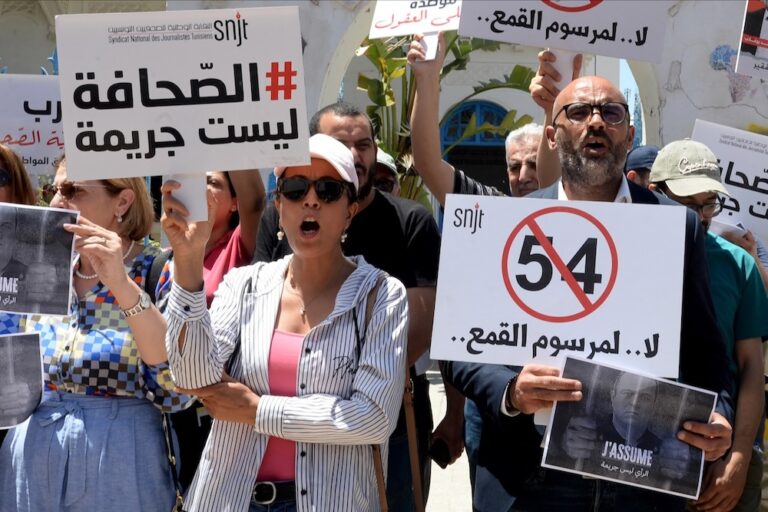(IFJ/IFEX) – The following is a 17 November 2005 IFJ press release: IFJ Challenges Governments at Internet Summit Over Media Rights After Attacks on Reporters The International Federation of Journalists today warned governments that plans for an information society based on democratic values would fail if they did not put media and free expression rights […]
(IFJ/IFEX) – The following is a 17 November 2005 IFJ press release:
IFJ Challenges Governments at Internet Summit Over Media Rights After Attacks on Reporters
The International Federation of Journalists today warned governments that plans for an information society based on democratic values would fail if they did not put media and free expression rights at the heart of policy-making.
IFJ General Secretary Aidan White, in a blunt speech to diplomats at the United Nations World Summit on the Information Society, also roundly condemned Tunisian restrictions on access to the Internet and “heavy-handed policing and intimidation” of journalists and representatives of human rights groups earlier this week.
“It is not enough to come to this podium and speak, albeit with sincerity and conviction, about building an information society that represents progress for all,” he said, “Unless we are ready to change the culture of relations between civil authorities and citizens who yearn to express themselves freely.”
He said there was “voluminous evidence” of states where there exist obstacles to free speech and editorial independence. “Too many governments are intolerant of dissent, negligent in their defence of citizens’ rights, and are cruelly indifferent to the hardship of media and journalists who suffer for their commitment to free expression,” he said.
He said this reality explained why many journalists and media were sceptical about a United Nations strategy for the information society which would respect democratic values.
He said that political will was needed to put media and the principles of independence, pluralism and quality information at the heart of policymaking.
“Never has it been more important for media and journalists to identify with quality, with standards and with sound ethical practice in their work,” he said. “And never has it been more important to nurture diversity and to support media in promoting the spread of reliable information among and between peoples.”
For these reasons it was necessary to reinforce free expression and put press freedom at the top of the international agenda. “The absence of commitment to implement fundamental free expression principles confirms the view of many in media that the WSIS will not create an enabling environment for an Information Society based on democratic values.”
He called upon the Information Society summit to take a number of urgent actions:
– to include media in all aspects of future policy, including, crucially, the elaboration of a new system of internet governance;
– to lift all obstacles to access and use of new information technologies;
– to act to end the crime of impunity over attacks on independent media and the killing of journalists and media staff; and
– to elaborate new programmes in support of free expression, providing resources that will mobilise media in Africa and other areas of need, and will create decent working and professional conditions for all.
These were minimum conditions for the creation of an information society that would strengthen democratic and human rights, he said.
The IFJ represents over 500,000 journalists in more than 110 countries.


